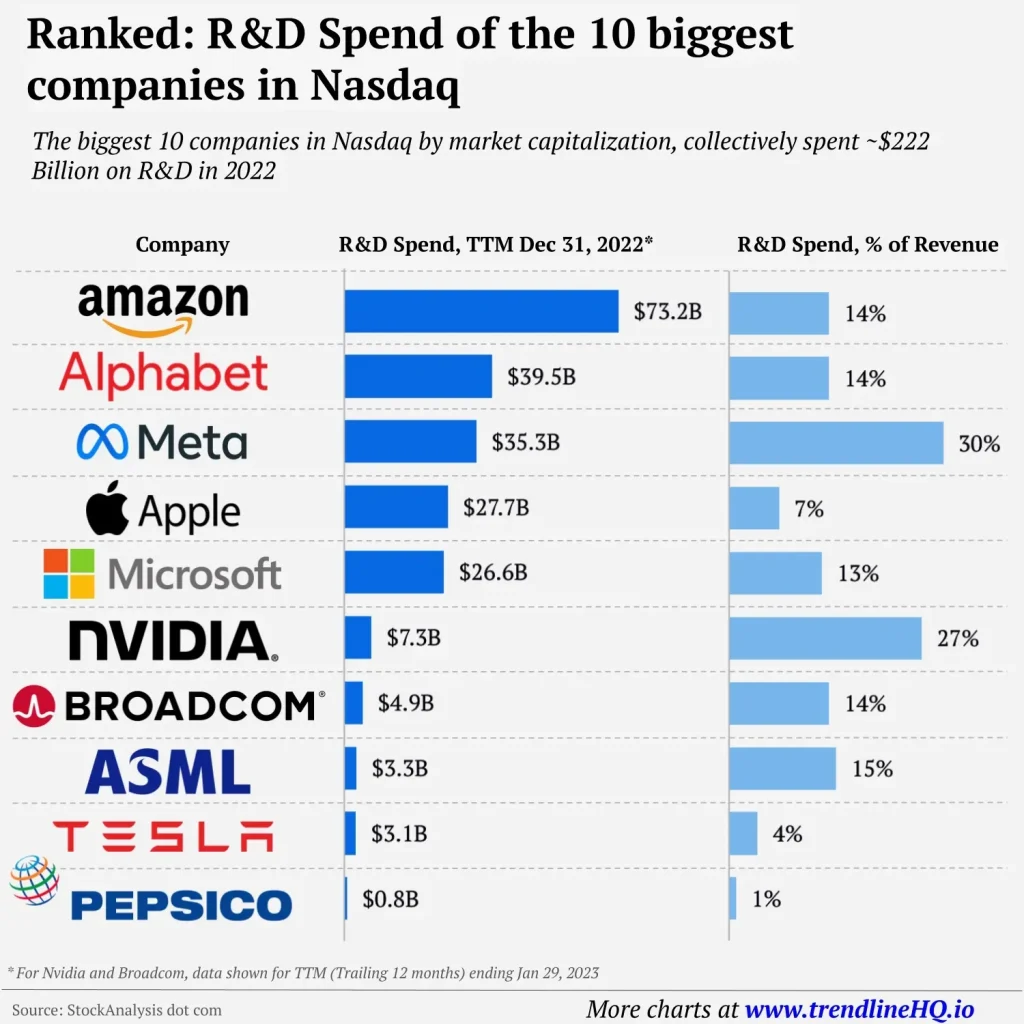U.S. company investments have dramatically shifted the landscape of domestic manufacturing, with numerous firms pledging substantial financial commitments aimed at revitalizing the American economy. In recent years, these investments have played a crucial role in fostering U.S. job creation, as firms respond to the changing dynamics influenced by tariff impacts on companies and global trade initiatives. From Apple’s ambitious plans to construct new facilities for artificial intelligence in Texas, to Abbott Laboratories’ multi-million dollar enhancements in Illinois and Texas, the ripple effects of these commitments are profound. Such manufacturing investments in the U.S. not only aim to bring jobs back to local communities but also seek to enhance innovation and competitiveness on a global scale. As more companies join this trend, the potential for widespread economic revitalization becomes increasingly evident.
Investments by American enterprises within the nation’s borders are witnessing a significant surge, driven by a strategic pivot towards reshoring operations. This trend encompasses substantial company pledges within the U.S. aimed at stimulating economic growth and bolstering workforce levels. The landscape is characterized by a growing emphasis on manufacturing investment in the U.S., where corporate giants such as Apple and Nvidia are leading the charge to expand their domestic presence. Such endeavors are essential not only for addressing tariff implications but also for capturing the opportunities presented by ongoing global trade initiatives. As these investments unfold, they herald a new era of U.S. job creation that promises to redefine industry standards and practices.
The Surge of U.S. Manufacturing Investment
In an unprecedented shift, numerous U.S. companies have committed to substantial investments in domestic manufacturing as a response to changing trade policies. This trend has been particularly notable since President Donald Trump began his second term, ushering in a new era of corporate pledges aimed at revitalizing American production capabilities. For instance, major players like Abbott Laboratories and Apple are investing hundreds of millions of dollars to expand their manufacturing and research facilities across various states. This dedication to U.S. manufacturing is a key aspect of the broader strategy to repatriate jobs, ultimately aiming to create thousands of new employment opportunities and strengthen the economy.
As companies bolster their manufacturing investments in the U.S., the anticipated outcomes could potentially reshape the nation’s job landscape. The shift not only involves increased production capacity but also encompasses innovations in technology and developments in research initiatives. With significant financial commitments, firms like Bristol Myers Squibb and Eli Lilly are stepping forward, emphasizing not just the immediate expansion of facilities, but also the long-term vision of fostering a robust workforce skilled in advanced manufacturing techniques. The cumulative effect of these investments is expected to generate dynamic growth in the U.S. job market.
Company Pledges in America: A Transformative Landscape
The competitive landscape in America is changing rapidly as more corporations unveil their commitments to substantial investments. These company pledges serve as crucial catalysts for economic enhancement, with many firms revealing plans to establish new facilities and hire thousands of employees. Take, for example, Apple’s commitment to invest $500 billion over four years, which includes creating a substantial number of jobs across different states. Such strategic initiatives underline the importance of corporate responsibility in contributing to national growth while aligning with government policies aimed at boosting domestic industries.
Furthermore, the implications of these company pledges extend beyond immediate job creation. By reinforcing local manufacturing capabilities, companies help mitigate the effects of tariffs, thus reshaping the competitive landscape in global trade. For instance, companies like Eaton and Nvidia are gearing up to manufacture cutting-edge technologies domestically, tapping into an expansive talent pool and reducing dependency on overseas production. This transformative approach represents a pivotal moment where corporate strategies align with national interests, promising a more secure and innovative economic environment.
U.S. Job Creation Through Corporate Investments
The influx of corporate investment in the United States is paving the way for substantial job creation. Companies like Eli Lilly are set to spearhead this movement by opening multiple new pharmaceutical manufacturing plants, expected to generate thousands of employment opportunities in fields ranging from engineering to laboratory research. This commitment not only showcases corporate dedication to the U.S. economy but also addresses the increasing demand for skilled labor in the evolving job market, where advancements in technology play a critical role.
The ripple effect of this job creation extends well beyond the immediate hires. It stimulates local economies, promotes community engagement, and lays the groundwork for future workforce development programs. As companies make significant investments in training and infrastructure, they contribute to a sustainable model of job growth that can withstand global economic shifts. The anticipated economic stimulus from such investments underscores the vital link between corporate strategies and national employment goals, marking a positive trend for American labor.
The Impact of Tariffs on U.S. Companies
The ongoing adjustments in trade policies, particularly concerning tariffs, are having a profound impact on U.S. companies and their strategic investments. As firms navigate these challenges, they are adopting innovative solutions to mitigate the adverse effects of tariffs on their operations. Companies like Abbott Laboratories, for instance, are not only investing heavily in new manufacturing technologies but also modifying their supply chains to adapt to the current economic climate. By proactively addressing potential cost increases associated with tariffs, these companies are exemplifying resilience in a volatile market.
Moreover, the potential for industry-specific tariffs poses additional challenges, particularly for sectors heavily reliant on international trade. Firms like Bristol Myers Squibb, which are expanding their domestic manufacturing capabilities, emphasize that a careful evaluation of tariff impacts is essential for long-term planning. This strategic foresight allows companies to model various scenarios and better prepare for the uncertainties that lie ahead. Ultimately, navigating tariff impacts will require a delicate balance of innovation, investment, and adaptive strategies to sustain growth.
Global Trade Initiatives and Their Implications
As U.S. companies increase their domestic investments, they also influence global trade initiatives that seek to redefine the dynamics of international commerce. The strategic focus on revitalizing American manufacturing addresses not just domestic job creation but also the nation’s standing in global market competitiveness. With major corporations like Nvidia and Apple leading the charge, there is a notable shift towards establishing a robust infrastructure that supports U.S. production capabilities while reducing reliance on foreign enterprises. This shift is accentuated by the countries adapting their trading strategies in response to changing U.S. policies.
The implications of these global trade initiatives are multifaceted, encompassing economic, political, and social dimensions. By prioritizing domestic investments, U.S. companies can better position themselves to navigate international trade challenges, such as tariff disputes and trade negotiations. Enhanced production capabilities enable them to fulfill domestic needs while engaging in international markets effectively. Ultimately, as companies align their strategies with global trade initiatives, they not only bolster their competitive edge but also contribute to a healthier, more resilient global economy.
Frequently Asked Questions
What impact do U.S. company investments have on job creation?
U.S. company investments significantly contribute to job creation, as evidenced by several major corporations pledging billions to expand manufacturing and R&D in the United States. For instance, Abbott Laboratories’ recent $500 million investment is expected to create approximately 300 new jobs in Illinois and Texas alone, highlighting the positive relationship between corporate investments and U.S. job creation.
How do tariffs affect companies making investments in the U.S.?
Tariffs can impose additional costs on companies investing in the U.S., influencing their strategic decisions. For example, Abbott anticipates hundreds of millions in costs due to tariffs, which could affect their investment plans. Companies like Eli Lilly are also preparing for potential industry-specific tariffs, indicating that tariff impacts are a crucial consideration in U.S. company investments.
What are the benefits of manufacturing investments in the U.S. for global trade initiatives?
Manufacturing investments in the U.S. support global trade initiatives by fostering innovation, creating jobs, and enhancing the country’s competitive edge in international markets. Companies such as Nvidia are investing heavily in U.S. manufacturing to bolster domestic production capabilities, aligning with broader trade policies aimed at repatriating jobs and addressing trade imbalances.
How do company pledges in America contribute to the economy?
Company pledges in America, such as those made by Apple and Bristol Myers Squibb, contribute to the economy by infusing billions of dollars into domestic manufacturing and R&D. These investments not only create thousands of jobs but also stimulate local economies and advance technological advancements, beneficially impacting U.S. economic growth.
What role do global trade initiatives play in U.S. company investments?
Global trade initiatives play a crucial role in shaping U.S. company investments by encouraging firms to align their strategies with national policies aimed at enhancing trade relationships and reducing barriers. Companies like Eaton are adapting their operations to leverage these initiatives, ensuring they remain competitive in a rapidly changing trade landscape.
| Company Name | Investment Amount | Investment Focus | Job Creation | Stock Performance (YTD) |
|---|---|---|---|---|
| Abbott Laboratories | $500 million | Enhancing manufacturing & R&D capabilities | ~300 jobs | +19% |
| Apple | $500 billion ($125 billion/year) | AI server factory & expansion across multiple states | 20,000 jobs nationwide | -21% |
| Bristol Myers Squibb | $40 billion | R&D & domestic manufacturing | -16% | |
| Eaton | $340 million | Transformer manufacturing facility | ||
| Eli Lilly | $27 billion (part of over $50 billion total) | New pharmaceutical manufacturing plants | ~3,000 jobs | -1.5% |
| Nvidia | $500 billion (AI Infrastructure) | Supercomputer and AI chip production | -12% |
Summary
U.S. company investments are seeing a significant increase as many of the largest corporations commit trillions of dollars to boost domestic manufacturing and research capabilities. The recent initiatives led by notable companies like Abbott Laboratories, Apple, and Nvidia reflect a growing alignment with government strategies aimed at enhancing economic resilience and addressing trade imbalances. As these companies navigate the evolving trade landscape, they not only contribute to job creation but also aim to fortify their operational foundations within the United States. This trend underscores a pivotal moment for U.S. company investments and may shape future economic policies.

